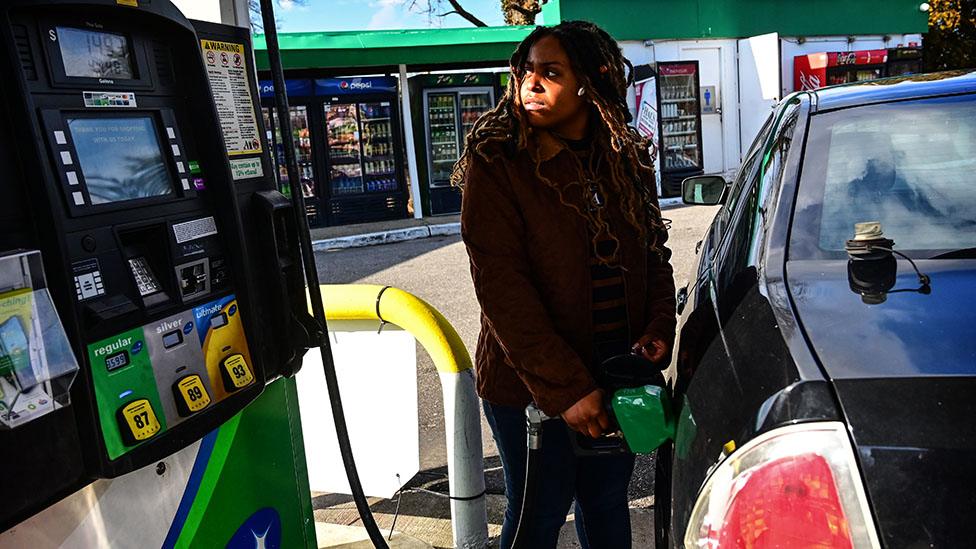Ukraine conflict: Transport firms feeling pinch of rising fuel costs
- Published
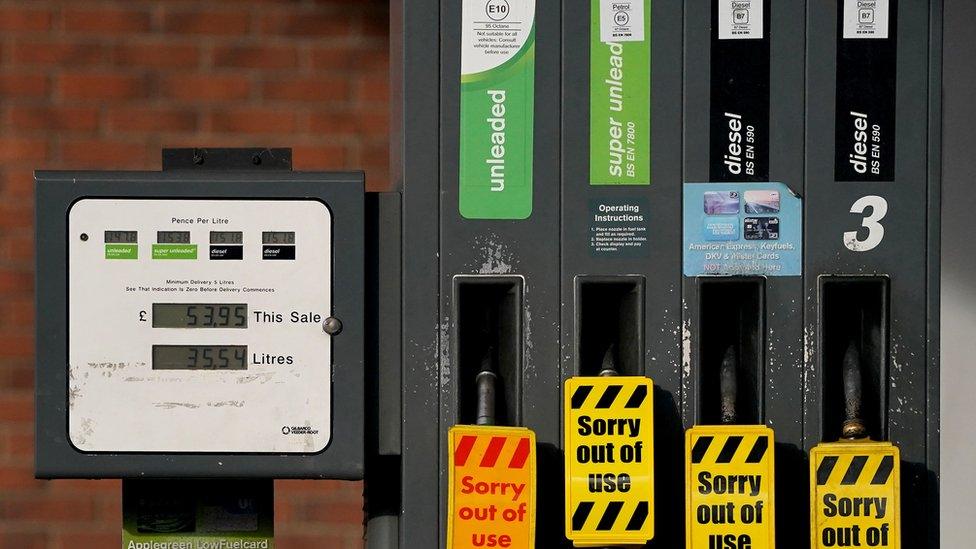
The conflict in Ukraine continues to affect the cost of oil and gas, putting a further squeeze on the cost of living.
World oil prices have jumped to $139 (£106) a barrel, the highest level for almost 14 years.
The Northern Ireland Consumer Council has found 500 litres of home heating oil costs £559.50 - an increase of 75% since 23 February.
And petrol and diesel prices continue to soar.
Petrol prices of £1.65 per litre have been reported in parts of Northern Ireland, with diesel prices close to £1.80 per litre some places.
Those compare to around the £1.20 per litre mark a year ago, and prices are unlikely to fall any time soon.
The owner of a County Fermanagh fuel company is predicting that diesel prices could hit £2 per litre by the end of this week.
Garry Jennings, from Jennings Fuels and Lubricants in Kesh, said as well as volatility in oil market, there are issues with supplies coming into Northern Ireland.
"We are selling the fuel we've bought in on Friday, tonight it looks like there's going to be another 10p on oil and that's going to come to us tomorrow morning.
"We buy on the day and try and sell on the day so this is fuel we bought in on Friday, tomorrow's fuel is going to be 10p up, what's going to happen Tuesday, Wednesday, Thursday?"
The Northern Ireland Oil Federation (NIOF) have said there is no issue with supplies, but they are dealing with a 10-day backlog of orders due to mass panic-buying.
While some drivers may be able to travel less or use public transport, that is not an option for transport companies.
Stephen Anton, from taxi company Fonacab, said rising fuel prices are felt directly by taxi drivers as they are self employed and account for all of their income and costs individually.
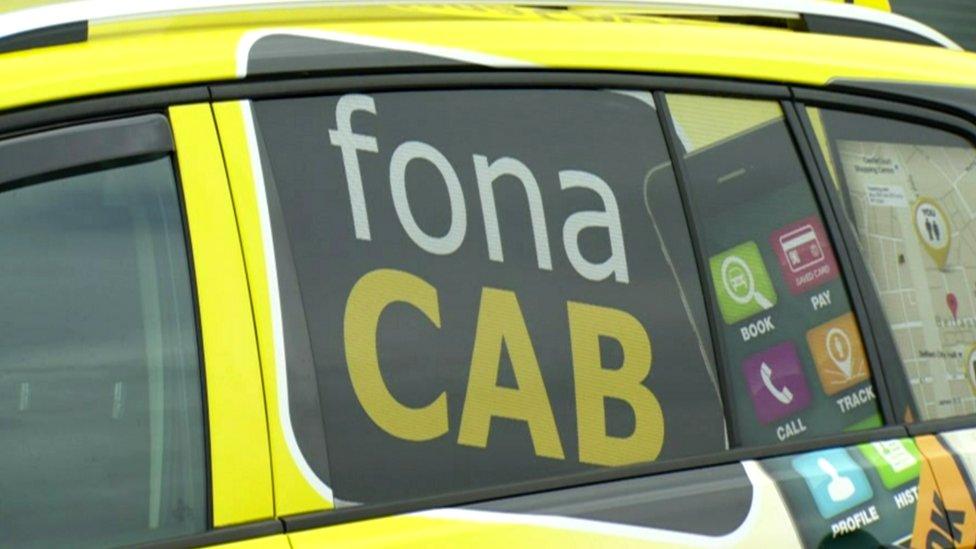
Stephen Anton, from taxi company Fonacab, said rising fuel costs may encourage drivers to leave the industry
"In other words, they fuel their vehicles, the cost of doing so an expense against their booking income," Mr Anton said.
"While drivers can offset fuel costs against their taxable income, the increased fuel costs affect what they take home on a day-to-day basis."
He added: "If this continues to be a problem, it has the potential to impact negatively on taxi driver numbers across Northern Ireland.
"Many drivers left the industry for various reasons during Covid and a substantial number have not returned, instead taking early retirement or remaining in other jobs they secured during lockdowns.
"A sustained high fuel cost may encourage some other drivers to do the same."
'Balancing act'
Mr Anton said the company was conscious that customers are feeling cost of living increases in their pockets too and did not want to increase fares unnecessarily.
"There is a balancing act to ensuring that prices remain competitive and affordable for our customers and are also sufficient to allow drivers to make a living and work to provide the services that customers need," he said.
"The current fuel price increases make this a more difficult exercise than ever.
"From our perspective, anything that can be done to reduce fuel costs for drivers' vehicles is a priority.
"A temporary decrease in fuel duty would be welcome, and there are other tools that local government can employ to reduce overall costs for drivers - for example, reducing the cost of an annual PSV for a taxi to that of an MoT."

Paul Stewart said some form of price cap would be beneficial
Paul Stewart, from courier firm NI Parcels, said fuel prices had been increasing "slowly but surely" over the last year.
"However, in the last six weeks the increases have been huge," he said.
"It has been the largest increase I have ever seen in our business.
"We have been absorbing some of the increases ourselves, but there is only so much you can absorb, so this has now resulted in some of the increased costs onto our customers.
"As the fuel prices change so regularly, it is difficult to keep changing your prices and this could make our business look unprofessional.
"It is a very difficult time to absorb the costs or increase prices, we have done a blend of both for now."
Mr Stewart said the full costs have not been passed onto customers, meaning a reduction in profits for the company.
"The main issue is the constant price changes making it difficult to set prices, some form of price freeze or price caps would be hugely appreciated," he said.
"As the fuel price increases so does the revenue collected on the duty on the increased prices. Duty on fuel could be reduced to help with these increases."
Related topics
- Published1 March 2022
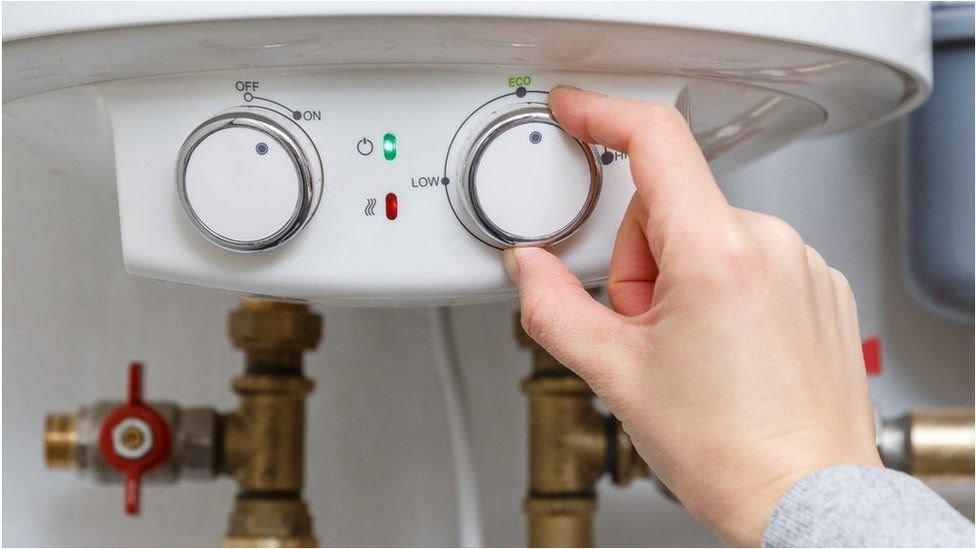
- Published3 March 2022

- Published2 March 2022
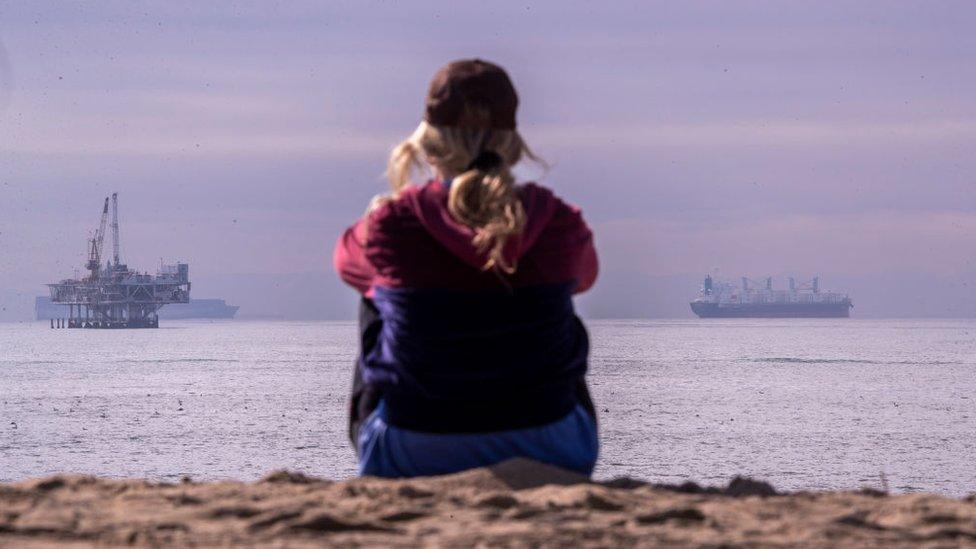
- Published3 March 2022
